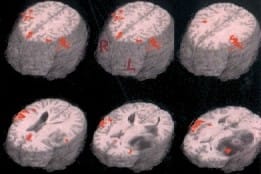Curriculum

The AOA Neurosurgery Residency Curriculum is challenging. It requires hard work, dedication and great amounts of energy. Academic skills will initially concentrate on basic science knowledge of neuroanatomy and neurophysiology as applied to the management of neurosurgical patients; including cerebral metabolism, cerebral blood flow dynamics, intracranial pressure, and neuropharmacology. Clinical topics to be studied will include:
disorders of the central nervous system
craniospinal trauma
cerebral neoplasms
cerebral vascular disease
disorders of the spine
disorders of the peripheral nervous system
As an Osteopathic Neurosurgery Resident to excel you must absorb the foundation, you must recognize, diagnosis, and understand the principles of management, and you must demonstrate this each and every year of residency. As you progress, you will become more autonomous. As an AOA Neurosurgery Resident, you will read both assigned topics and readings designed to expand your neurosurgical knowledge base, and then as an energetic and responsible achiever, you will broaden the scope of reading. With your dedication and the close mentoring of those committed to your education you will acquired the ability to critically evaluated Neurosurgical literature. The Neurosurgery Resident must also submit a paper for publication, papers demonstrating excellence, papers exploring new frontiers and papers showing a devotion to bettering society.
As a Neurosurgical resident, dedicated to helping others, you will begin to spend more time involved in the training of the junior residents. The AOA Neurosurgery Resident always strives to make the world a better place, lecturing and discussing various aspects of the junior resident academic curriculum, supervising and critiquing patient evaluations, and supervising operative aspects of patient care.
You will be expected to manage the patients on service at first with supervision, but as you grow academically and clinically you will become more self-sufficient throughout the years. The complete curriculum can be found at www.facos.org
These include academic skills, clinical skills, and measured profeciencies.
As an AOA Neurosurgery Resident, you will progressively improve your clinical skills. Initially, you must excel in obtaining a neurological history and conducting a neurological examination. You must integrate those challenging skills into the management of the operative patients. You will spend time in the operating room assisting senior residents or attending neurosurgeons with surgeries. As you demonstrate your maturity and responsibility, reading about the specific operations and discussing relevant anatomy, pathology, and management options for each specific patient with the team, you will do more. AOA Neurosurgery Residency Programs are technology driven. However, the AOA Neurosurgery Resident must be a survivor and must lean to operate and treat even if stranded on a desert island. You will learn neurosurgical armamentarium. The faculty will take you under their wing, guide you and teach you about the use of specific equipment such as a variety of cranial headrests, self-retaining retractor systems, laser guided systems, stereotactic frames, surgical microscopes, power drills, microsurgical instrumentation, implanting electrodes and frameless stereotaxy.
This young women presented with a highly malignant tumor called a glioblastoma multiforme, life expectancy without treatment just 4 weeks. It was in her motor area and speech area. This functional MRI demonstrated the multiple locations of the mouth motor area. The functional MRI was combined with Navigational software permitting a resection and long life.
After developing surgical skills such as opening and closing wounds, creating burr holes with power and manual instrumentation, inserting a variety of types of intracranial pressure monitoring devices and the neurosurgical management of the processes and diseases, you will excel. You will develop skills that require less supervision. You will expand your clinical and technical abilities sufficient to become Chief Resident.
You will also participate in the office care of adult and pediatric neurological patients learning management skills, and acquiring more responsibility.
As an AOA Neurosurgery Resident, you are expected to annually sit for the AOA Neurosurgery In-service exam which is designed to measure your progressive academic and clinical knowledge. These results will be reported back to you and your Program Director.
AREAS OF EXPERTISE
AOA Neurosurgery Residents receive strong training in the neurological management of infection, trauma, hydrocephalus, radiculopathy, spinal disease, tumors, stroke, pain, degenerative disease, seizures, peripheral nerve disease, vascular disease, congenital defects, and intensive care management. AOA Neurosurgery Residents also obtain instruction in complex spine surgery, minimally invasive spine surgery, endoscopic surgery, skull base surgery, pediatric surgery, neurovascular surgery, endovascular surgery, movement disorder surgery, functional/epilepsy/stereotactic surgery, radiosurgery just to name a few of the areas. AOA Neurosurgery Residencies are committed to maintaining the most current neurosurgical equipment and techniques as well as actively developing future methods and approaches.